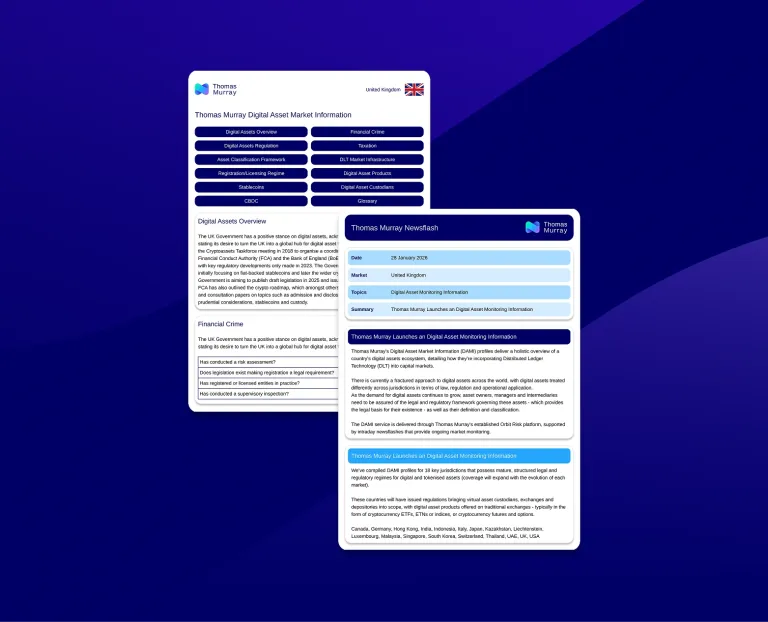For Asset Allocators, Operational Due Diligence (ODD) is a cornerstone of safeguarding assets and managing risk. In an industry defined by complexity, compliance demands, and an ever-increasing volume of data, ODD plays a critical role in identifying operational risks and ensuring the reliability of external fund managers and counterparties.
As best practice evolves, regulatory frameworks tighten and resources remain constrained, embracing a streamlined and technology-driven approach to ODD has become imperative. This article explores the foundational elements of ODD and the transformative role of technology in modernising the process.
Why Operational Due Diligence Matters
Operational Due Diligence goes beyond the operational framework to examine the underlying systems and processes that support its activities. It ensures that the infrastructure supporting external managers is resilient, efficient, and aligned with regulatory and investor expectations.
This diligence provides a way to manage risk effectively by identifying and mitigating vulnerabilities that could damage reputation or assets. By addressing these areas, ODD not only safeguards investments but also strengthens confidence among stakeholders.
Key Challenges in ODD
Despite its importance, ODD comes with inherent challenges.
- Information Overload: With data flowing from investment managers, extracting meaningful insights can be daunting.
- Scaling challenges: As the portfolio grows, especially with a majority being externally managed, there is an increasing need to assess new potential managers while continuously monitoring existing ones.
- Resource Constraints: Limited budgets and personnel make it challenging to perform comprehensive due diligence on every investment.
- Regulatory Pressure: Keeping pace with shifting regulations requires constant vigilance and adaptability.
The Core Elements of Operational Due Diligence
To navigate these challenges, asset allocators must focus on a few critical aspects.
- Due Diligence Questionnaire: The due diligence questionnaire serves as a foundation for the ODD process, allowing asset allocators to assess the investment manager's capabilities, identify potential risks, and evaluate their overall suitability as a partner. By carefully reviewing the responses to the questionnaire, asset allocators can gain valuable insights into the investment manager's operations and make more informed decisions about current or potential future investments.
- Ongoing Monitoring: Staying ahead of reputational and operational risks requires proactive monitoring of public sentiment and news related to Asset Allocators. AI-driven tools like Thomas Murray’s Orbit Intelligence offer personalised alerts that cut through the noise, enabling rapid response to potential issues.
- Financial Statement Analysis: The ability to extract, scrub, and analyse financial data from general partners is pivotal. Automated tools provide dashboards that highlight trends and raise red flags, supporting both qualitative and quantitative assessments.
- Cyber Security Risk Ratings: Provide an objective evaluation of an investment manager which can be tracked over time. Detecting vulnerabilities and exposures from publically available data offers an additional lens through which to assess the robustness of the investment manager’s cyber security posture.
- Entity Profiling: A comprehensive view of an investment manager’s operational profile helps fund managers to see the complete picture, track progress and make informed decisions. Centralised dashboards consolidate data for a holistic perspective.
Leveraging Technology to Enhance ODD
Modern technology is transforming ODD by addressing its most pressing challenges. Automation plays a pivotal role, eliminating manual inefficiencies and freeing up resources for higher-value activities. Tools like Orbit Risk automate data collection and analysis, ensuring that critical insights are delivered quickly and accurately. Advanced analytics powered by AI and machine learning uncover patterns and anomalies that human analysts might miss, offering deeper insights into operational risks.
Collaborative tools enhance communication and document sharing, creating secure platforms that keep teams aligned and informed. These tools also help investment fund managers maintain compliance by integrating evolving regulatory requirements directly into their ODD processes. Together, these technological advancements create a streamlined, efficient approach to ODD that meets the demands of today’s investment environment.
Benefits of a Streamlined ODD Approach
Adopting advanced tools and frameworks for ODD offers significant benefits. Standardised processes ensure consistency across all due diligence activities, while enhanced efficiency reduces manual workloads and allows resources to be allocated more effectively. Moreover, using sophisticated ODD tools demonstrates a commitment to high operational standards, building credibility with stakeholders and instilling confidence in the investment process.
The Role of Thomas Murray’s Operational Due Diligence Solution
Thomas Murray’s Operational Due Diligence product, hosted on the Orbit Risk platform, is designed to tackle the challenges of modern ODD. Key features include:
- Questionnaire platform: An advanced questionnaire tool with in-built communication and task tracking
- Managed Services: End-to-end support for due diligence questionnaires, reducing administrative burdens.
- Ongoing Monitoring: AI-powered alerts tailored to investment portfolios.
- Financial Statement Analysis: Automated data extraction and trend analysis.
- Cyber Security Risk Ratings: Detection of vulnerabilities and exposures with configurable alerts.
- Entity Summary Dashboards: Centralised operational profiles for informed decision-making.
These capabilities not only streamline workflows but also enhance risk management and reporting, enabling fund managers to focus on strategic priorities.
ODD is indispensable for asset allocators aiming to safeguard their assets and optimise performance. By leveraging technology to automate processes, enhance insights, and streamline workflows, firms can overcome resource constraints and stay ahead in an increasingly complex investment landscape.
As ODD evolves, solutions like Thomas Murray’s Operational Due Diligence tool are setting new benchmarks for efficiency, accuracy, and strategic value.







